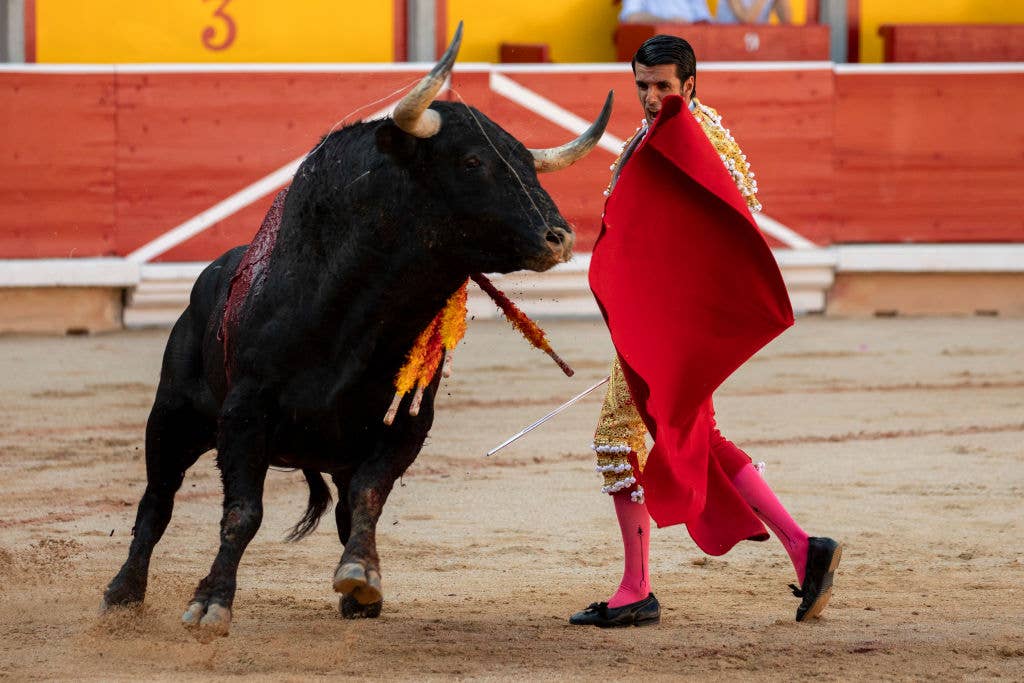
Ban on Bullfighting in Bogota Means No Bulls Can Be Harmed in the Arena
Colombia is finally breaking away from its longstanding tradition of bullfighting in the nation's capital. The city council of Bogota is banning the harming and killing of animals in the sport of bullfighting, after years of controversial fights over whether this practice should be allowed to continue. The law, which in draft, has the backing of the Green Alliance Party and would put an end to the violence that has been central to the sport for centuries.
The law will ban all acts that "lacerate, cut, maim, injure, burn or hurt animals in any form whatsoever, as well as putting a bull to death," says Green Alliance Party council member Andrea Padilla. City Council members are hoping that by prohibiting the violent aspect of the sport, spectators will lose interest and eventually stop supporting it altogether. If Colombian legislators pass this law, only three bullfighting events will occur per year in the Santamaría Bullring and those would not allow the hurting or killing of the bulls.
Bullfighting has been a part of the Spanish and Latin culture for hundreds of years and the tradition dates back to the earliest known bullfight in the year 711, but it came to a halt in Bogota in 2012 after the city's mayor banned the sport as illegal in light of animal cruelty. This temporary ban was eventually overturned in 2018 after Colombia's Constitutional Court ruled bullfighting was a tradition and therefore does not fall under the category of animal cruelty.
The Green Alliance Party's new law is getting pushback from the President of the Bullfighting Corporation of Bogota, Juan Bernardo Caicedo, who told reporters the ban is illegal and "unconstitutional."
Bullfighting has been a part of Colombian culture for centuries: Besides Bogota, Medellin, Cali, and Manizales also are known as hubs for the controversial events. Bullfighting is also popular in countries such as Spain, France, Portugal, as well as Mexico, Peru, Ecuador, and Venezuela. Banning the harming of bulls during bullfighting in Bogota would be an historic precedent that may lead to other Colombian cities and event other countries to adopt similar legislation. So what happens with the case has global repercussions to the age-old violent sport.
More From The Beet






